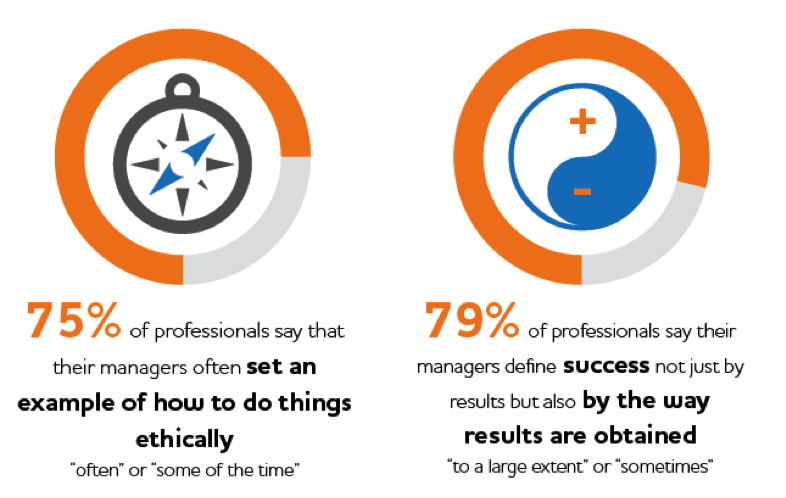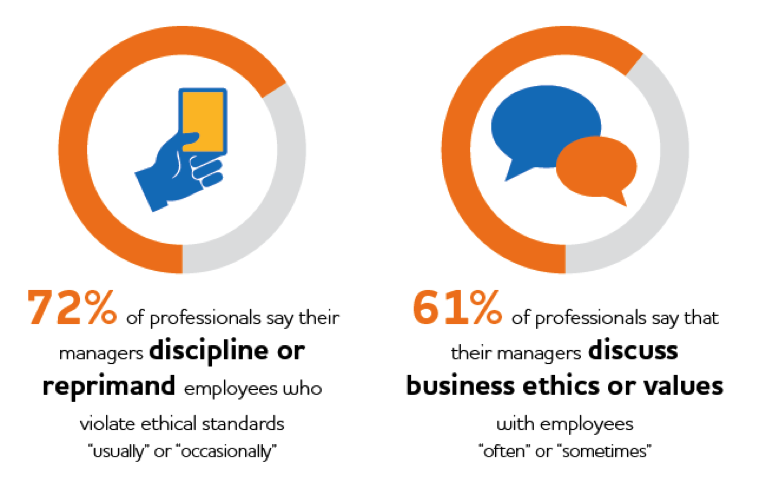How To Be An Ethical Leader Ethical behavior, in its simplest form, is knowing and doing what is right.
By Lama Ataya
Opinions expressed by Entrepreneur contributors are their own.
You're reading Entrepreneur Middle East, an international franchise of Entrepreneur Media.
We can't really discuss ethical leadership without looking first at ethical behavior. Ethical behavior, in its simplest form, is knowing and doing what is right. The key to having an ethically-run company is employing morally upstanding leaders.
In her book, Seven Lenses: Learning the Principles and Practices of Ethical Leadership (2013), author Linda Thornton says that getting employees to act ethically in the workplace starts at the top. In fact, managers should realize that their actions have a trickle-down effect within the company; employees will likely follow the lead and model their actions.
With the awareness about the importance of business ethics, Bayt.com embarked on a research journey into ethical leadership in the Middle East, which we did in collaboration with Canadian University Dubai (CUD). The poll showed that the building blocks for a more sustainable form of leadership in the region indeed exists.
Related: How To Maximize (And Succeed At) Your CSR Endeavors
Many define business ethics as being socially responsible
We often hear about the negative impact of making ethical mistakes in business. We hear about fines, boycotts, and very embarrassing scandals that make us doubt the very integrity of organizations we admire.
What we don't hear often about are the benefits of ethics, and how ethical leadership can have a positive ripple on business- especially when it's programmed into an organization's corporate culture. These days, it's more important than ever before to program ethical leadership by having set ethical guidelines and procedures. Leaders who understand this are more likely to attract top employees and clients. When they set the right example for other employees, they help create an environment that encourages good corporate citizenship, and that motivates employees to perform better and more innovatively.

The majority agree that everyone is responsible for being ethical
37% of respondents in the Bayt.com poll on ethical leadership in the Middle East view business ethics not just as being legally compliant, but also engaging in socially-responsible activities. 65% see ethics are the responsibility of everyone in the organization.
In your effort to promote ethical behavior throughout the organization, try to develop a transparent work culture to both your employees and stakeholders. Make sure that company information is always available to those who need it, and demonstrate transparency in your decision making process. Employees are much more likely to reciprocate when managers exhibit trustworthy behavior.

Leaders are setting positive examples
Ethical leaders are those who display reflect a good image of the business, and in turn, attract and retain the best talents. Good news is, 75% of professionals in the Middle East affirm that their managers often set an example of how to do things ethically, as revealed in the Ethical Leadership in the Middle East poll of January 2016.

Leaders are listening to their employees
Develop an honest work environment where employees can report unethical behavior without fear of punishment. No one wants to be considered a snitch, so gain confidence and trust by providing a private space to discuss any concerns anonymously. Investigate the claims fully, before jumping to conclusions, while maintaining the anonymity of your employee. Then discipline or reprimand, if necessary, in order to establish that some actions are not accepted, and will not be tolerated. 72% of professional respondents in the same poll (ethical leadership in the Middle East) say that their managers discipline or reprimand employees who violate ethical standards.

Leaders are talking about ethics
According to our poll on diversity of thought in the Middle East, released in October 2015, 88% of professionals in the region are comfortable sharing their views at work, even if it goes against the majority. Today we see more and more leaders who are encouraging their employees to communicate freely and openly and not restricting their thought process and ideas. By doing so, a leader would not only be promoting an environment of honest and open communication, but also showing staff trust and respect. At Bayt.com, for example, we offer an online platform, Sawtna, where employees can voice their concerns. We also conduct town hall meetings across our offices so employees can interact with management and give their feedback on issues that affect them.

Recommendations: How managers can program ethics into their leadership style
We can't talk about ethical leadership without providing a guideline to managers who want to program ethics into their corporate culture and leadership style. Here are seven ways managers in the Middle East can promote ethical behavior:
1. Don't think about ethics as just following laws and regulations. Leaders need to take action and show consumers and other stakeholders that they are actively engaged with ethical issues that matter. Recognize how ethics influences consumers' reasons to buy from you, and demonstrate a commitment to go beyond mere compliance with laws and regulations. They must prove that they are committed to ethical issues, including human rights, social justice and sustainability.
2. Care about people before profits. Realize that the triple bottom line of people, planet and profits is not only about prioritizing people over profits, but also thinking about how your company affects the planet and adopting environmentally-friendly ways of doing business.
3. Ethical behavior is reciprocal. Employees are more likely to reciprocate when their managers exhibit trustworthy behavior, so it is important to demonstrate fairness and transparency in all your decisions.
Related: Stats and Remedies For Employee Turnover In The Middle East
4. Democratize decision making. Asking for feedback and suggestions from your staff will show trust and respect for their opinions.
5. Share and delegate. Sharing information with and delegating tasks to your team will empower and motivate them, yielding tremendous dividends in their creativity.
6. Communicate. Being an ethical manager is about clearly communicating what is acceptable behavior, and what is not, and ensuring your employees understand that you have an open door policy to discuss any situation where an ethical decision is needed. Prevention is better than cure.
7. Have a clear code of conduct. Codes of conducts are required to help employees discern the different shades of grey in the ethical continuum. It is essential that training and explicit discussions about ethical issues are conducted regularly. Include ethical behavior in performance metrics and employee reviews, and set the right cultural tone right from the start.
Related: Why You And Your Boss Need To Work On Your Emotional Intelligence













